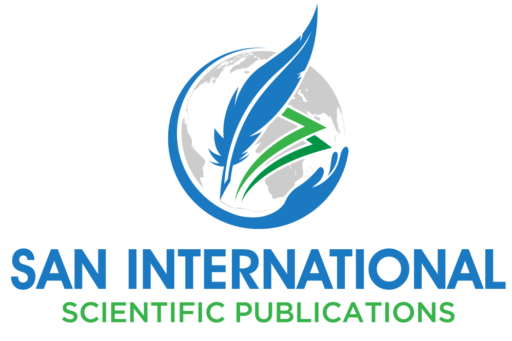Chief Editors: Mr. Irshadullah Asim Mohammed, Dr. Yogesh Mohan Gosavi, and Prof. (Dr.) Vineeta Kaur Saluja
Associate Editor: Mrs. Sruthi S
Co-Editors: Dr. S. Rajeswari, Dr. Nikhil Saini, and Ms. Atreyee Banerjee
ISBN: 978-81-985805-1-1
Chapter: 45
Author: Dr. Nishta Rana
DOI: https://doi.org/10.59646/mrnc45/321
Abstract
The rapid evolution of research methodologies has been significantly shaped by the rise of open and digital tools, offering both transformative opportunities and notable challenges for researchers across various disciplines. Open tools, with their core principles of accessibility, transparency, and collaboration, empower researchers by providing extensive data repositories, enabling global collaboration, and facilitating wide dissemination of findings. Complementarily, digital tools revolutionize data collection, analysis, and visualization, enhancing the efficiency, scalability, and scope of research endeavours. However, these advancements also present pressing challenges, including data privacy concerns, cybersecurity risks, the persistence of a digital divide limiting equitable access to resources, and issues affecting the reliability and reproducibility of digital outputs. This paper critically explores the dual impact of these tools, emphasizing the importance of establishing strong ethical guidelines, fostering digital literacy, and implementing strategies to bridge access gaps. Ultimately, a forward-thinking, responsible approach is essential to harness the full potential of open and digital tools, ensuring research practices that are innovative, inclusive, and ethically sound while contributing to the advancement of knowledge.
References
- Björk, B.-C. (2017). The Open Access Movement: Opportunities and Challenges for Researchers. Springer.
- Crouzier, T. (2016). Online tools for researchers. Retrieved from http://connectedresearchers.com/online-tools-for-researchers/
- Dastin, J. (2022). Bridging the Digital Divide: Ensuring Equal Access to Open Research Tools. Technology & Society, 14(1), 88-102.
- Gallab, M., Nardo, D., M. & Naciri, L. (2024). Navigating contemporary challenges and future prospects in digital industry evolution. Discover Applied Sciences, 6, 259 https://doi.org/10.1007/s42452-024-05913-2
- Harman, G. (2015). Quality assurance initiatives in Thailand. International Higher Education, (27), 15-16.
- Harris, R., et al. (2020). Data Privacy and Security in Open Research: A Review of Current Issues. Journal of Digital Ethics, 6(2), 109-123.
- Koller, D., et al. (2021). Digital Tools in Modern Research: Enhancing Data Collection and Analysis. Oxford University Press.
- Mhlongo, S., Mbatha, K., Ramatsetse, B. & Dlamini, R. (2023). Challenges, opportunities, and prospects of adopting and using smart digital technologies in learning environments: An iterative review, Heliyon, 9(6), e16348, https://doi.org/10.1016/j.heliyon.2023.e16348
- Nielsen, M. (2017). Reinventing Discovery: The New Era of Networked Science. Princeton University Press.
- Piwowar, H. A., Day, R. S., & Fridsma, D. B. (2018). The Open Access Advantage: Citation Impact of Open Access Articles. PLoS ONE, 13(5), e0198707.
- Simmons, J. P., Nelson, L. D., & Simonsohn, U. (2011). False-Positive Psychology: Undisclosed Flexibility in Data Collection and Analysis Allows Presenting Anything as Significant. Psychological Science, 22(11), 1359-1366.
- Suber, P. (2012). Open Access. MIT Press.
- Waterworth, P.G. (2020). Contemporary academic research and the challenges of the digital era. In n.a. (2020) Advances in Social Science, Education and Humanities Research, 3rd International Conference on Innovative Research Across Disciplines (ICIRAD 2019) (pp. 436-439), Atlantis Press SARL, 394.

